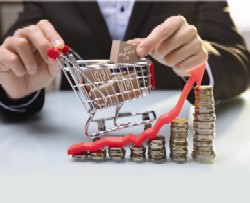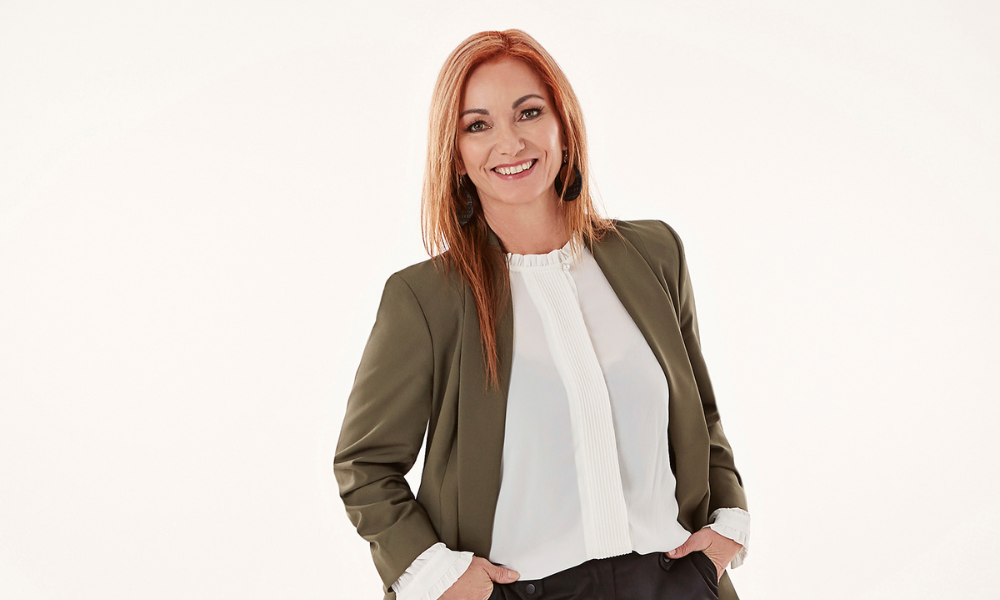from MarketWatch
Netflix Raises Prices 16%, Peter Schiff Warns of Escalating Inflation Risks Ahead of Trump Policies
by Kaustubh Bagalkote
Benzinga.com
 Netflix Inc. announced a 16% price increase for its standard streaming plan on Tuesday, prompting economist Peter Schiff to warn of persistent inflation risks ahead of potential policy shifts under President Donald Trump‘s administration.
Netflix Inc. announced a 16% price increase for its standard streaming plan on Tuesday, prompting economist Peter Schiff to warn of persistent inflation risks ahead of potential policy shifts under President Donald Trump‘s administration.
What Happened: The streaming giant raised its ad-free standard plan from $15.49 to $17.99 monthly while increasing its premium tier to $24.99 and the ad-supported option to $7.99.
The price hikes coincided with Netflix’s robust fourth-quarter earnings report, which showed revenue climbing 16% year-over-year to $10.25 billion and subscriber growth of 18.91 million, bringing total paid memberships to 301.63 million.
Schiff, a vocal critic of current monetary policy, cautioned on X that the Netflix price increase signals broader inflationary pressures. “The lull in the inflation storm is over. The consequences of inflationary monetary policy that finally showed up under Biden will kick into a higher gear under Trump,” he wrote.
Eleven Reasons Why the Federal Reserve is Bad
by Michael Snyder
The Economic Collapse Blog
 Most Americans realize that the federal government is drowning in debt and that inflation is out of control. But very few Americans can coherently explain where money comes from or how our financial system actually works. For decades, bankers that we do not elect have controlled America’s currency, have run our economy into the ground, and have driven the U.S. government to the brink of bankruptcy. The Federal Reserve is an institution that was designed to drain wealth from U.S. taxpayers and transfer it to the global elite. Have you ever wondered why a sovereign nation such as the United States has to borrow United States dollars from anyone? Have you ever wondered why a sovereign nation such as the United States does not even issue its own currency? Have you ever wondered why we allow a group of unelected private bankers to run our economy?
Most Americans realize that the federal government is drowning in debt and that inflation is out of control. But very few Americans can coherently explain where money comes from or how our financial system actually works. For decades, bankers that we do not elect have controlled America’s currency, have run our economy into the ground, and have driven the U.S. government to the brink of bankruptcy. The Federal Reserve is an institution that was designed to drain wealth from U.S. taxpayers and transfer it to the global elite. Have you ever wondered why a sovereign nation such as the United States has to borrow United States dollars from anyone? Have you ever wondered why a sovereign nation such as the United States does not even issue its own currency? Have you ever wondered why we allow a group of unelected private bankers to run our economy?
Those are some very important questions. Hopefully what you are about to read will open the eyes of many. The truth is that our financial system is centrally-controlled and centrally-managed by a group of banking oligarchs who oversee a constantly expanding debt spiral which could come crashing down at any time. If the American people truly understood how our system works, they would be protesting in the streets right now. The following are 11 reasons why the Federal Reserve is bad…
Trump Ordered the U.S. Government to Lower Prices for Americans. Can He Deliver?
by Aimee Picchi
CBS News
 President Trump, who while campaigning vowed to end the “inflation nightmare,” on Monday signaled his focus on the high cost of living in the U.S. by signing an executive order that requires “all executive departments and agencies to deliver emergency price relief” to Americans.
President Trump, who while campaigning vowed to end the “inflation nightmare,” on Monday signaled his focus on the high cost of living in the U.S. by signing an executive order that requires “all executive departments and agencies to deliver emergency price relief” to Americans.
Mr. Trump’s Jan. 20 order blames several factors for the pandemic-era inflation surge that has left many households feeling financially pinched, including high federal spending under the Biden administration and costs from new regulations.
“It is critical to restore purchasing power to the American family and improve our quality of life,” the executive order states.
To accomplish that, Mr. Trump is ordering the departments and agencies that fall under the executive branch, including the departments of Commerce, Health and Human Services, Labor, and Energy, to take actions that lower prices for everything from housing and health costs to food and fuel.
Americans Say Their Savings Accounts Aren’t Keeping Up with Inflation. There’s a Fix.
by Daniel de Visé
USA Today
Most Americans feel their bank accounts aren’t keeping up with inflation, a new survey finds, fresh evidence that savers who seek high interest rates may not be looking hard enough.
In a survey fielded by the personal finance site WalletHub, 65% of bank customers said the money in their accounts isn’t keeping pace with inflation. The findings come from a nationally representative survey of more than 200 consumers.
If a consumer’s bank account is earning less than the inflation rate, banking experts say, that may be the customer’s own fault.
“People do not do enough comparison shopping when it comes to where they’re going to put their money, their savings,” said Odysseas Papadimitriou, CEO of WalletHub. “They usually rely on the easiest solution.”
How Much Do Commodities Impact Inflation Indices?
by Dr. Mark Shore
CME Group
 Inflation rose across much of the world as the COVID-19 pandemic disrupted supply chains and changed consumption patterns during a period of social sequestration. In the United States, inflation topped 9% at its peak, but has since come down sharply although it remains stubbornly above the Federal Reserve’s (Fed) 2%target. In the U.S., the rate of inflation is primarily measured by two indicators: The Consumer Price Index (CPI), calculated by the Bureau of Labor Statistics (BLS), and Personal Consumption Expenditures (PCE), calculated by the Bureau of Economic Analysis (BEA). These indicators contain a variety of prices across several sectors such as food, energy, durable goods, services, transportation, and rent.
Inflation rose across much of the world as the COVID-19 pandemic disrupted supply chains and changed consumption patterns during a period of social sequestration. In the United States, inflation topped 9% at its peak, but has since come down sharply although it remains stubbornly above the Federal Reserve’s (Fed) 2%target. In the U.S., the rate of inflation is primarily measured by two indicators: The Consumer Price Index (CPI), calculated by the Bureau of Labor Statistics (BLS), and Personal Consumption Expenditures (PCE), calculated by the Bureau of Economic Analysis (BEA). These indicators contain a variety of prices across several sectors such as food, energy, durable goods, services, transportation, and rent.
What Trump’s Tariffs Plans Mean for Inflation: Chart of the Day
by Madison Mills
Yahoo! Finance
![]()
President Donald Trump’s initially proposed tariff strategy was widely viewed as inflationary by market participants. However, the new president has since moderated his stance, announcing plans for just a 10% tariff on China by February 1.
In today’s Chart of the Day, host Madison Mills examines how inflation and markets could respond if these revised tariff plans are implemented.
To watch more expert insights and analysis on the latest market action, check out more Morning Brief here.
Inflation Remains Steady, but Likely Won’t Influence Interest Rates
The labour market and economy will be bigger predictors
by New Zealand Adviser
NZ Adviser
 Inflation remains steady in New Zealand, according to Wednesday’s consumer price index. The results are another indicator of what’s to come as the nation continues to battle conflicting market pressures.
Inflation remains steady in New Zealand, according to Wednesday’s consumer price index. The results are another indicator of what’s to come as the nation continues to battle conflicting market pressures.
Wednesday’s report revealed that the CPI rose 0.5% for the quarter, or 2.2% for the 12 months ending December 2024, in line with what market participants were expecting.
Kelly Eckhold, Westpac’s chief economist NZ, told New Zealand Adviser, that the market’s reaction to the report is “basically neutral.”
“It wasn’t a surprise,” he said. “It just confirms that inflation isn’t really the biggest driver of the Reserve Bank and interest rate policy right now. What’s going to be more important are what trends in the labour market and general economy as we go through the first half of the year.”
Gold Breaks Triple Top to Soar to Three-Month High Above $2,750 On Inflation Expectations
Gold rises 2% to break triple top
from Trading View
 Precious metal turned up as investors reacted to Trump’s tariff plans, which are likely to flare up inflation, leading to interest rates that may stay higher for longer. Let’s break it down.
Precious metal turned up as investors reacted to Trump’s tariff plans, which are likely to flare up inflation, leading to interest rates that may stay higher for longer. Let’s break it down.
Donald Trump Kicks Off Presidency
— Gold prices pumped nearly 2% on Tuesday and extended the swing early Wednesday to $2,750 per ounce as markets were reacting to Donald Trump’s first moves in office. The 47th President of the US signed more than 200 executive orders on his first day at the job, sending investors scrambling, gold bugs included.
Liquidity Problems Could Overwhelm Inflation’s Effects
by Kelsey Williams
GoldSeek
 LIQUIDITY PROBLEMS – 1929
LIQUIDITY PROBLEMS – 1929
In 1928 and 1929, the Fed raised interest rates for the purpose of curbing rampant speculation in stocks. At that time, investors could borrow as much as 90% of the stock price for their proposed investment. The banks were just as aggressive as investors and were happy to oblige.
Raising rates did not slow stock speculation by investors or banks, however.
What it did do was cause a slowdown in economic activity. Thus, as economic activity declined, the stock market continued its rise, unabated.
Inflation Soars in Russia
by Martin Armstrong
Armstrong Economics
 Russia’s CPI reached 9.5% this December as government spending has pulled the reigns away from the central bank. Inflation elevated from 8.9% YoY in November to 9.5%, slightly below expectations of 9.7%. Prices are up 1.3% on a monthly basis overall, but Russians are feeling the impact of war.
Russia’s CPI reached 9.5% this December as government spending has pulled the reigns away from the central bank. Inflation elevated from 8.9% YoY in November to 9.5%, slightly below expectations of 9.7%. Prices are up 1.3% on a monthly basis overall, but Russians are feeling the impact of war.
Services from 11.4% to 11.5% on the yearly while non-food goods are up from 5.7% YoY to 6.1% Prices at the grocery store have soared from 9.9% YoY to 11.1% as Russia struggles to find reasonably priced imports. Core inflation is up 1% monthly, but up 10% over the past four quarters. The central bank is lightyears away from its 4% inflation target. The spread between rates and inflation is a concerning 11.5%.
Russia’s Central Bank maintained its policy rate of 21% in December. This is not a money supply issue and government cannot curtail spending amid a rapidly escalating war effort.
